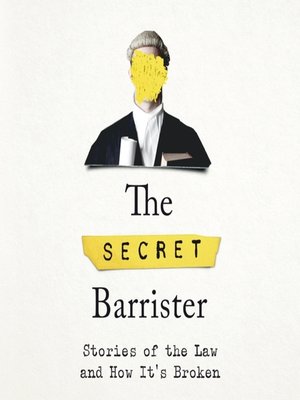
As a former criminal barrister myself, I expected this book to communicate how little we value the people and institutions so vital to our liberty. Rape trials have collapsed because police and prosecutors – all victims of the same, sabotaging cuts – have failed to disclose key evidence on which a fair and robust defence depended. Since 2010, 258 courts have shut across England and Wales. Whole areas of law, including family, housing, immigration, debt and employment, have been taken outside the realm of publicly funded legal representation, leaving some of the most vulnerable people at the mercy of a system that is designed to be incomprehensible to even the most highly educated lay person. Over the last near decade of austerity, justice has endured the deepest cuts of any departmental spending in the UK. “Despair” is the experience of another in the court of appeal. “Hell” is the word used by one supreme court judge. It is above all a plea to rescue a justice system that has become utterly broken.

The book is in part a guide to the system – a reminder of how few of us understand it – and in part a first-hand account of the personal dilemmas facing someone whose professional life is spent in and out of crown courts, police cells and prisons. Ifficient supplied its client with more than 840,000 fake responses it had received from the lead generators it had hired.This is a portrait of the criminal justice system in England and Wales today, as seen by the Secret Barrister, a criminal advocate who keeps his identity a closely guarded secret so that, he argues, he can be unrestrained in his critique. The third company, Ifficient, acted as an intermediary, engaging other lead generators to enroll consumers in the campaign.

Instead, each independently fabricated responses for 1.5 million consumers. Two of the companies, LCX and Lead ID, were each engaged to enroll consumers in the campaign. However, nearly every lead generator that was hired to enroll consumers in the campaign instead simply fabricated consumers’ responses.Īs a result, more than 8.5 million fake comments that impersonated real people were submitted to the FCC, and more than half a million fake letters were sent to Congress, according to the state attorney general's office.

To help generate these comments, the broadband industry engaged commercial lead generators that used advertisements and prizes, like gift cards and sweepstakes entries, to encourage consumers to join the campaign.

(Sarah Silbiger/CQ Roll Call / Getty Images) House Minority Leader Nancy Pelosi smiles following a vote that would help stop the Federal Communications Commission's effort to reverse Obama-era regulations on net neutrality May 16, 2018.


 0 kommentar(er)
0 kommentar(er)
